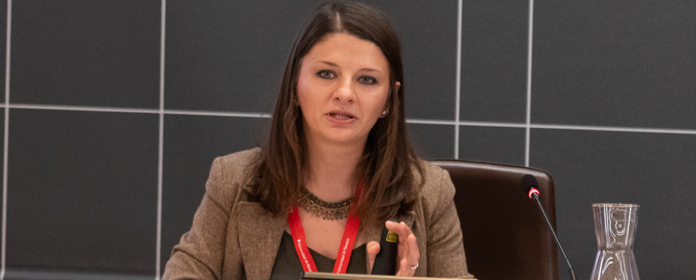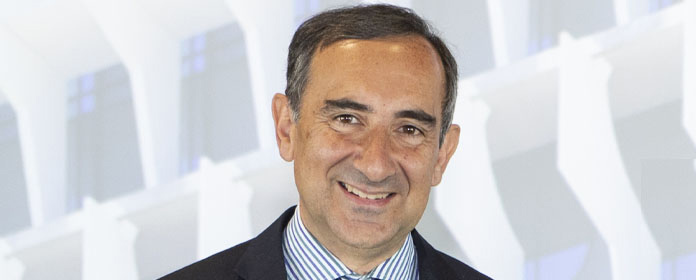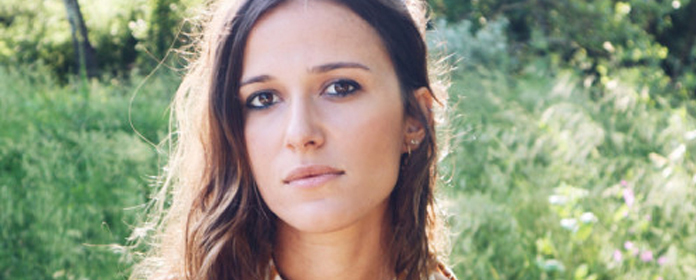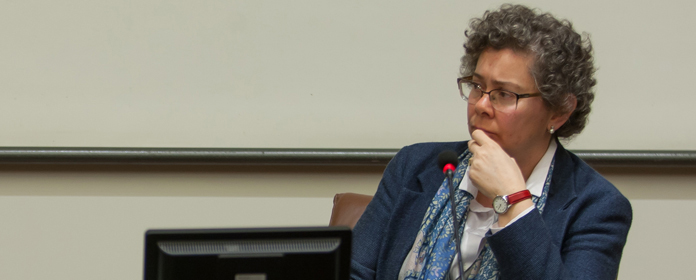The coronavirus pandemic, a before and after in the habits of contemporary humanity
José Ignacio Murillo, researcher of the ICS and professor at Philosophy, states that "if we are not satisfied with surviving or passing the time peacefully, but actively seek to improve ourselves and our relationship with those around us, it is easier to turn unforeseen events into opportunities".
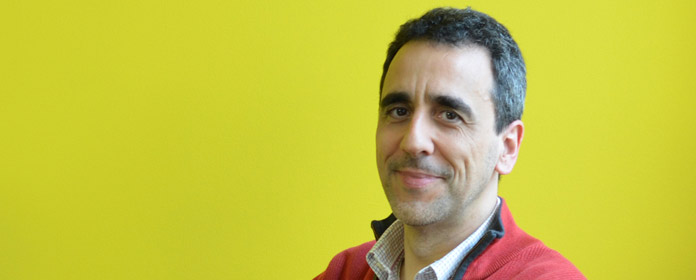
PHOTO: Borja Centenera
José Ignacio Murillo is researcher principal of group 'Mente-cerebro' (Mind-brain) of the Institute for Culture and Society (ICS) and professor at department of Philosophy of the University of Navarra. Given the health crisis we are facing globally due to the coronavirus and the quarantine imposed by most countries, Murillo reflects on the impact of habits and how they can help or harm us. He also analyzes the impact of this pandemic on our condition as social beings.
According to research at group 'Mind-brain', when faced with a new status , our decisions are influenced by our habits. How can this statement be framed in the current health crisis?
One characteristic of human beings is that we are able to adapt to new contexts and challenges. Facing the new is not just a demand imposed on us, but something that makes us financial aid to improve, to aspire to more. In other animals, adaptation is rather limited by fixed patterns of response and only very limited learning is possible. Our learning not only allows us to adapt rigidly to the environment, but also allows us financial aid to face new situations with flexibility and to impose our own goals on them.
What influence do habits have on this status of confinement, for some, and of exhibition to a risk, for others?
Habits are always formed, in part, by routines and acquired automatisms that free our attention to attend to larger objectives. Of course, these become harmful when they produce inappropriate responses and we lose control over them. If human habits are so special, it is because we are able to focus resolutely on the goals that each of us sets for ourselves. That is why we are able to go back to our routines, to use them differently, to modify them. In the end, virtue does not consist in doing what we already know, but in preparing ourselves to do what is most appropriate, even if we have to learn it.
These days we receive, for example, advice on how to protect ourselves or others. But the habits of hygiene or precaution should not become manias but rather manifestations of our eagerness to overcome this new status and to improve the lives of others. Nor would it be good that our life, in the new conditions that each one of us will have to face, becomes an inert repetition of what we have been able to preserve from our previous existence instead of facing the new status as an opportunity to grow.
How can we adapt to such an abrupt change as the one experienced with COVID-19?
Better than just adapting, we should try to make the most of our current status , even though at first glance it may seem to be just a set of limitations. If we are not content to just survive or pass the time peacefully, but actively seek to improve ourselves and our relationship with those around us, it is easier to turn unforeseen events into opportunities. This is also a learned disposition, a truly positive habit.
How can this crisis affect our way of life?
Exceptional situations can serve to appreciate more and better what we previously took for granted. We should never lose the willingness to be amazed by what surrounds us: this is another excellent habit. But we know how easily we succumb to routine; habits then become disconnected from our deepest longings, which should animate them, and imprison our lives in a cage that we sometimes impose on ourselves.
And what transformations do you envision for the future?
It is difficult to know how the new status and what we learn from it will affect our future lives. It is certain that many of us will incorporate knowledge that, until now, seemed dispensable and now, on the other hand, will not. We may even end up getting used to possibilities that necessity has made us discover.
I hope, of course, that what we have lived through will also help us to have more esteem for some things that we may now miss: the freedom to move around our environment, the presence of the people we hold dear, the human warmth that should characterize our usual environment of work; also, unfortunately, for some, the possibility of accompanying our loved ones with closeness in the hour of illness and in the face of the threat of death.
And how do you think it will affect our productive system?
Even the obvious risks that threaten our Economics may be an opportunity to rethink the medium or long term viability deadline of our economic model and explore new ways of producing, distributing and, at final, of living. The inertia - the routine - that dominates our societies is so strong that it may sound utopian, but we can always remain hopeful.
What about the way we relate to each other?
For some, this status condemns them to loneliness and forces them to overcome the temptation of isolation and boredom, while for others it imposes a close coexistence and requires them to exercise in a careful and patient way the virtues of living together. In either case, it is important that we use this opportunity to improve the quality and depth of our relationship with the people we live with.
We come from a society where relationships are increasingly mediated by new technologies. On the other hand, with the coronavirus we are seeing initiatives that seek the presence of the other. How do we explain this paradox in the line of habits?
There are those who are tempted to take refuge in the virtual, fleeing from real life as if it were a liberation, but what will happen when what is imposed on us against our will is the virtual and, on the other hand, it is the direct contact that limits us? The status of alarm and confinement that we live in Spain puts before our eyes to what extent we are not a loose verse, and can serve us to consider realistically what are our real relationships with others and with our society, our inalienable social and political condition.
We often consider our life with very individualistic schemes and this also generates in us habits that limit and impoverish us. Exceptional situations such as this one teach us, however, how much we depend on others and how much we owe to them. They also force us to ask ourselves to what extent and under what conditions we can accept that our freedom be limited, lest the exceptional end up justifying abuses in the future. Justice and solidarity are active virtues, which are not limited to compliance with external norms or requirements, but lead us to make the common good our own with intelligence and to promote it with sensitivity and initiative.

